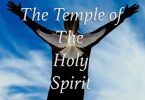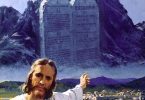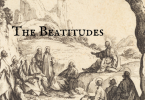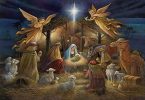2nd Sunday of Advent (Year B)
Scripture: Is. 40:1-5, 9-11; Ps. 84:9-14; 2 Pet. 3:8-14; Mk. 1:1-8
We are celebrating second Sunday of Advent. The scripture readings invite us to prepare the way for the Lord. It tells us the absolute necessity to be ready when the Lord returns. The human being is created by God and He always wants His people to return to Him. As St. Augustine beautifully said, “Thou has made us for yourself, O Lord, and our heart is restless until it finds its rest in thee”. Today’s liturgy is a reminder to all of us that God is calling us to himself. He not only calls us but He himself comes down to us. We need to prepare the way for his coming. We have all the three readings that give us the same message.
The first reading from the book of Isaiah was written in the Babylonian exile around 700 years before Christ. Prophet Isaiah had a message of consolation to the people who had already spent years in the captivity. He told them that God would bring them back to their homeland. The prophet could see that the King of Persia had already won the small battles and he was approaching the Babylonians whose power was diminishing.
God used mysterious ways to rescue the Israelites from the hands of Pharaoh in Egypt. Now He was using the King of Persia, a non-Jew to deliver them from the Babylonians. Isaiah was well aware of this fact. He was full of hope, although the journey was life-threatening and impossible in the deserts. He believed that God would save His people because He was tender and compassionate.
The prophet did not spare words to remind the Israelites that the exile was punishment for their sinfulness. He tells those exiled to make a straight highway, to fill the valley, bring down the mountain and hills and to prepare the way. These words are exhortations to amend their ways of lives. They were asked to be humble themselves before the Lord. In other words, they were called to prepare the way of the Lord by means of repentance.
The second reading from the second letter of St. Peter is now known as the last writings of the New Testament. It was written somewhere 125 AD. The church was well established at the time of this letter. The number of faithful was growing but they faced many questions. One of the questions was how to understand the second coming of Christ because it was delayed. There were false teachers who ridiculed those who believed in this belief. Some Christians began to believe that it was an error and wrong belief, therefore they had given up their hopes.
The author of the letter counters these false teachings. He gives a reason for reckoning time according to God which is so unique with God. He also says that the Lord patiently deals with man. He wants everyone to be saved. The Lord wants to take everyone back with Him in heaven. Meanwhile, we need to be holy and live like saints. The period of waiting should be best lived without spot or stain. These words too have the exhortation to amend our ways and live lives of holiness. The author of the second reading is also asking us to prepare the way for the Lord by means of remaining holy and spotless.
The same theme reflects in the Gospel today. The Gospel text is the beginning of the Gospel of St. Mark. He introduces Jesus as the Son of God in the first line of his Gospel. That is his main theme of the Gospel. Later in the Gospel, he brings this title on two occasions. On one occasion right at the middle of the Gospel; Peter would confess that He is Christ. The Gospel of St. Mathew will add one more phrase; Son of the Living God. (Mk. 8:27-30/Mt. 16:13-20) and at another occasion right at the end of the Gospel, the centurion who stood at the cross said, “Surely this man was the Son of God.” (Mk. 15:39). The evangelist is telling us that Jesus is the son of God. He is coming in the world and this is the good news (Gospel). He immediately brings in John the Baptist as a messenger of the good news. He is the voice that cries in the wilderness. The evangelist quotes from the Old Testament namely; Malachi 3:1 and Is. 40:1-5. Thus, fulfilling the prophesy of prophets. Secondly, the people of Israel believed that Elijah would appear again before God comes down to earth. Mark describes John the Baptist in the same attire as Elijah. It is written, Elijah too wore a garment of hair and had a leather belt around his waist (2 Kings 1:8).
John the Baptist who was the pre-curser for Christ had a simple message: receive the baptism of repentance for the forgiveness of sins. It was interesting to note; a male-gentile was received in the Jewish faith by the baptism of repentance (Leviticus 11-15). He had to do three things at the time of reception: 1) Accept circumcision as a mark of covenant with God. 2) Offer sacrifices for he stood in need of atonement 3) Undergo baptism by immersion in the water. The baptism was followed by the confession. What is striking in John the Baptist was he asked his fellow Jews to do the same as the gentiles. He was convinced that the Jews also needed repentant hearts to receive the Son of God in their lives.
The season of Advent is a reminder to all of us that the Lord is coming. We do not know the hour. The day of the Lord will come because it has been promised by the Lord himself. The Lord cannot tell us lies. He is the truth. His coming is delayed because he wants to treat each and every one of us patiently. During this waiting time, we need to prepare His way. In other words, we need to live our lives without spot or stain. We need to be like saints. We need to repent over our sinfulness. Let us pray during this holy Eucharist that we may prepare for the Lord by preparing the way in our lives.






